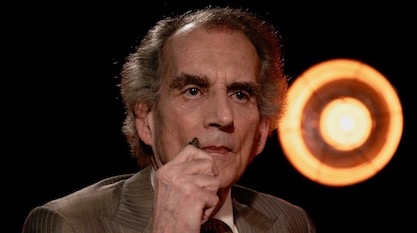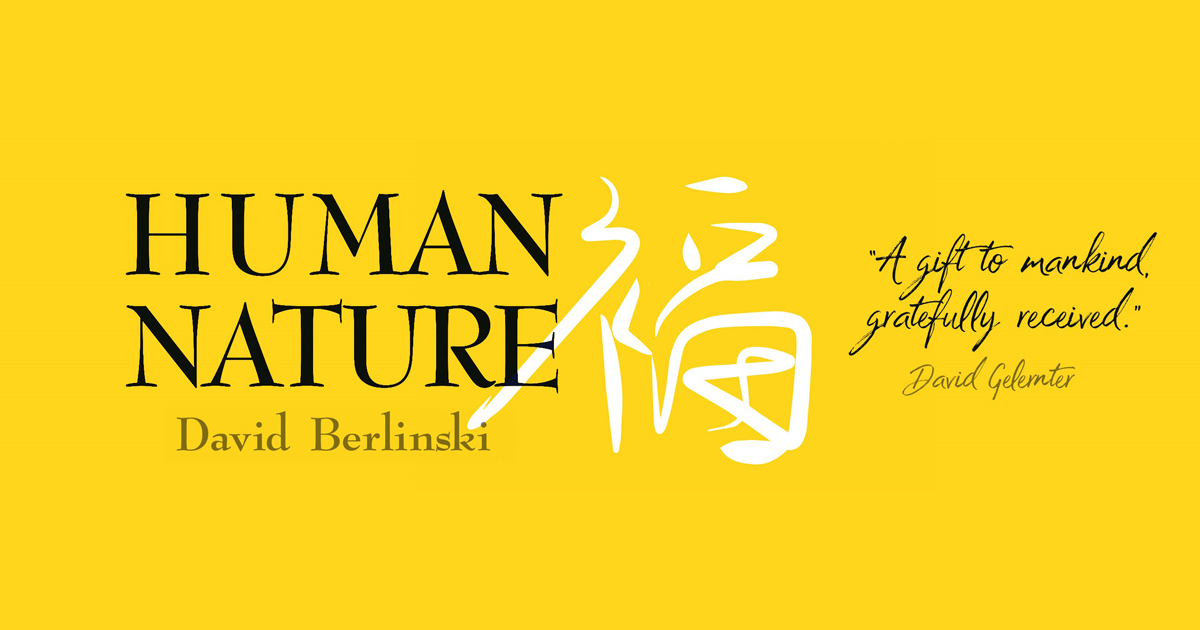 Culture & Ethics
Culture & Ethics
Michael Aeschliman in National Review — Berlinski Detonates “Fatuous, Flattering” Optimism


From climate change to the coronavirus, one tendency among writers and commentators is to an urgent, insatiable, almost sexual desire to cast unwarranted terror over other people. This tendency is matched by an equal appetite, among a large part of the public, for being terrified. The market is well matched with its suppliers.
But this dynamic is mirrored by its opposite: a wish, proceeding from different personal imperatives but no less urgent, to assure us that the future looks better and better, all progress with little pain. There’s a market for this, too, and the relationship with the suppliers is just as tight. It’s to this second pairing that David Berlinski turns his attention in his recent essay collection, Human Nature.

Two Celebrity Intellectuals
Dr. Berlinski gets a fabulous review from Michael Aeschliman in National Review, highlighting the “fatuous, flattering” supply chain for empty optimism, exemplified by two celebrity intellectuals. From “An Eloquent Witness and Wit: David Berlinski on Human Nature”:
Berlinski’s targets, and his candidates for the most fatuous, flattering optimists of our time, are two best-selling contemporary intellectuals — Harvard’s Steven Pinker, in The Better Angels of Our Nature (though of course Pinker doesn’t believe in angels), and the Israeli historian Yuval Harari, in Homo Deus: A Brief History of Tomorrow (though of course Harari doesn’t believe in the Incarnation). Pinker alleges confidently that “we may be living in the most peaceable era in our species’ existence.” One should not underestimate the jolly, eupeptic effects of a tenured professorship at an Ivy League university on the point of view of a thinker. In Harari’s very speculative Homo Deus, the futurist tells us that “during the second half of the twentieth century, the Law of the Jungle has finally been broken, if not rescinded” (this from a resident of the contemporary Middle East). He also observes that free will and consciousness do not exist, before going on to tell us that in the future men will be gods. After carefully and wisely critiquing these claims, Berlinski concludes: “Men are not about to become like gods. Harari has been misinformed.”
Berlinski — The Antidote
In response to Pinker and Harrari, the antidote is a sober, rational, humane, historically informed perspective, “sage and saving.” As Aeschliman recognizes, that’s just what the polymathic Berlinski brings to bear:
His wit, as well as his specialized expertise (philosophy, linguistics, mathematics, biology), are centripetally engaged on behalf of the rational human being. As much as Swift, he is a metaphysical dualist, knowing that ethics can neither be derived from nor reduced to scientific empiricism, although empiricism is also an indispensable component of our knowledge and education.
Berlinski’s essays on the First World War and on recent history generally are earnest, antiseptic efforts to stimulate the reader’s rational-ethical sensibility, to illuminate the reality of human inadequacy, incompetence, and tragedy in history — especially recent human history. They remind one of the sage and saving perspectives of earlier, 20th-century thinkers such as T. S. Eliot, Reinhold Niebuhr, Herbert Butterfield, Martin Luther King, Malcolm Muggeridge, and the heroic Russian writer Alexander Solzhenitsyn.
Not bad company to keep! The rational, the sober, the heroic, but don’t forget the hilarious — that is our friend and colleague David Berlinski in brief. Get your copy of Human Nature now.
Photo at the top: David Berlinski on Ben Shapiro’s Sunday Special. Did you miss that? See it here:
